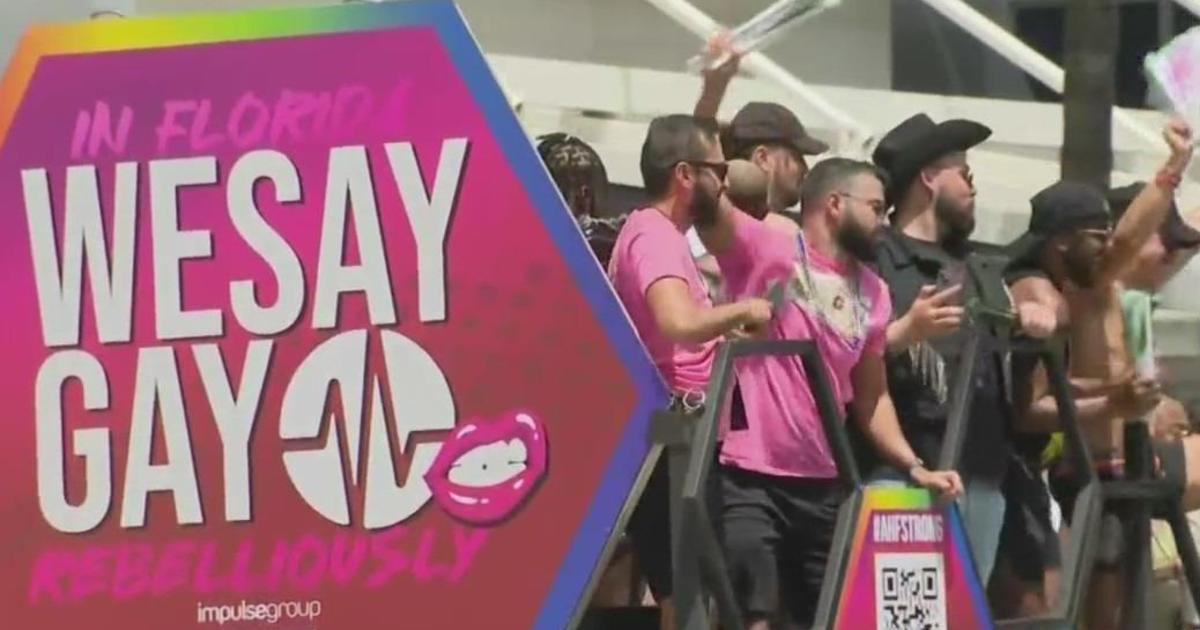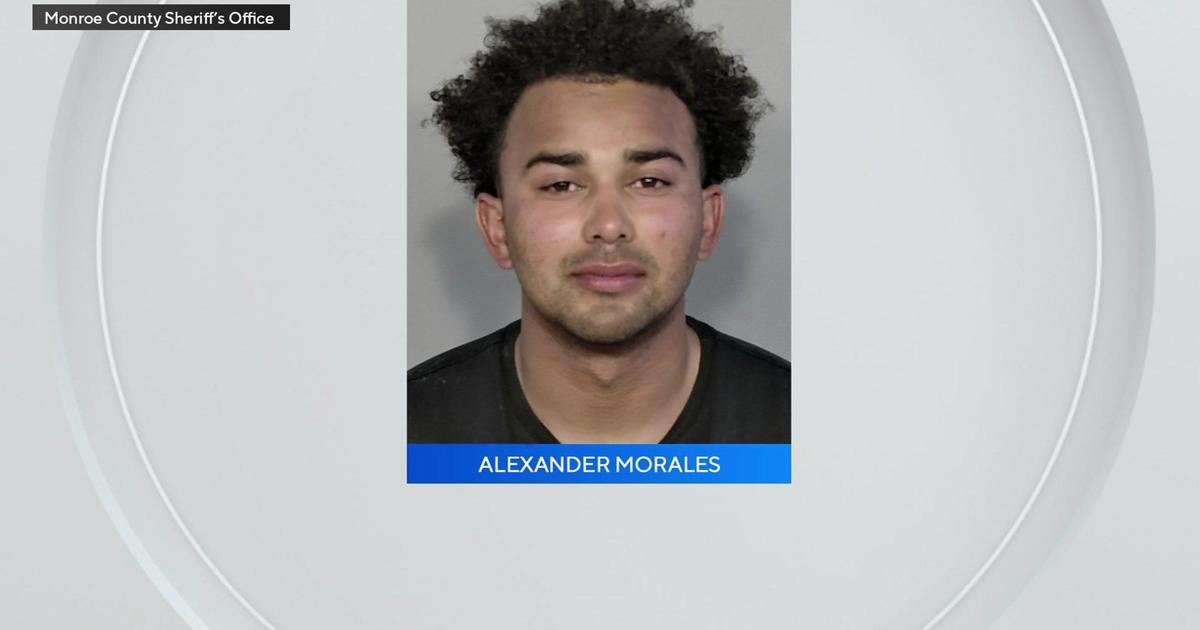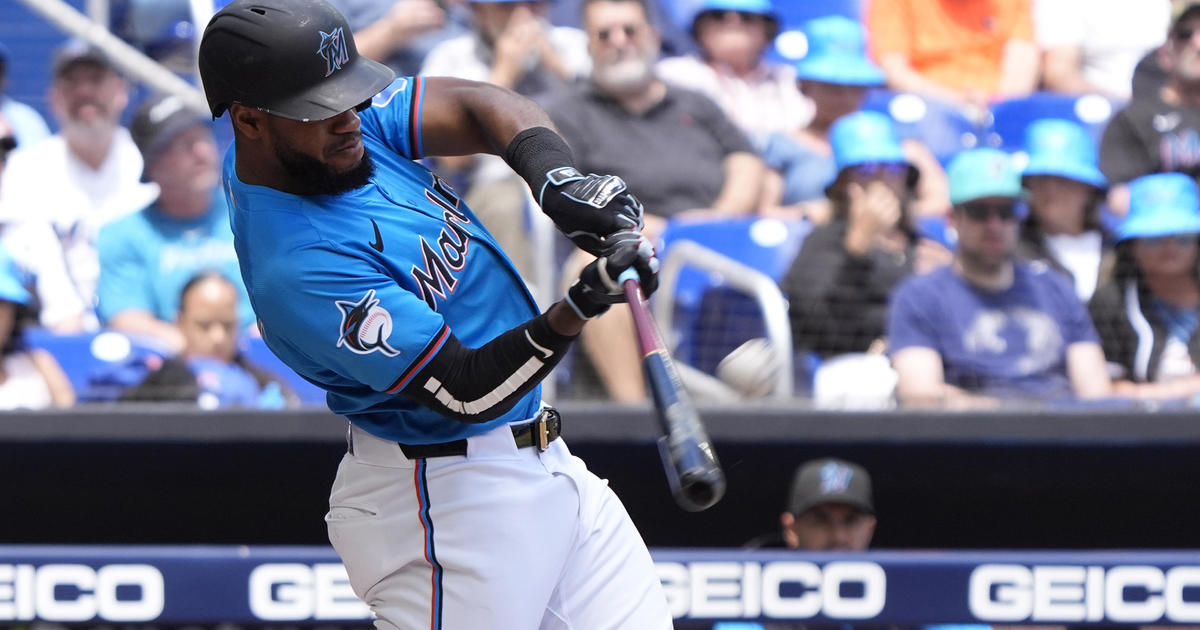Death Penalty Talk Surrounds UM Scandal
MIAMI (CBSMiami.com) – Only one football program has ever received the NCAA's most severe penalty, known as "the death penalty," but if the allegations against Miami are proven by the NCAA, "the U" could be facing a similar fate to Southern Methodist University in 1987.
The NCAA's death penalty isn't an actual term used by the association. It's a media term that describes the worst penalties the NCAA can give.
According to the NCAA, the sanctions can include eliminating the involved sport for at least one year, the elimination of athletics aid in that sport for two years and the school relinquishing its Association voting privileges for a four-year period.
NCAA president Mark Emmert has opened the door for an institution to receive the death penalty again.
"You have to recognize that, today, inflicting that penalty on any one school has a lot of collateral damage to other members of the conference, around media contract rights and a variety of things. So you wouldn't enter into it casually," Emmert told USA Today.
"Having said that, if that's an opinion that the Committee on Infractions believes is appropriate in any one case - it doesn't matter which one it is - I'm not opposed to them using that. We need to have penalties that serve as effective deterrents so that people who are doing calculation in their head whether or not the risks and rewards line up...recognize the price of getting caught."
SMU received the death penalty for repeatedly breaking the rules of the NCAA. The worst part of the scandal for SMU exploded when an investigation found 21 players were being paid from a booster's slush fund with full knowledge of the school.
SMU had the 1987 season cancelled and was only allowed to play seven games away from home in 1988. The school played no games in 1988. The team was put on probation for four more years and had a bowl game and television ban until 1989.
The school also lost 55 scholarships over four years, could hire only five full-time assistant coaches and the school had severe restrictions placed over recruiting.
The Mustangs went from a national power to a national laughingstock. It took twenty years for the school to make it back to a bowl game.
Back to Miami's case, if the allegations are proved true, it will be the worst scandal the NCAA Committee on Infractions has faced since the SMU scandal. It will also put the Hurricanes in the unenviable position of being the example the NCAA is looking for to truly scare schools back into compliance.
According to the Palm Beach Post, former University of Missouri compliance director and academic advisor Lynn Lashbrook said the death penalty is very much on the table.
"I wouldn't be surprised if they would be a likely candidate for a death penalty," Lashbrook said. "I don't know if there is any other penalty that would suffice but the death penalty."
The NCAA has been hesitant to ever give the death penalty to a school since crushing SMU's program.
Compounding the problem for Miami is the recent Committee on Infractions penalties given to the University of Southern California.
USC was stripped of 30 scholarships over three years and banned from playing in bowl games for two years after Reggie Bush received around $300,000 from two agents and that one USC assistant coach was involved.
The chair of Committee on Infractions that hammered USC is Paul Dee. He is the former athletic director at the University of Miami during the time Shapiro alleges he was running rampant inside the program.
At the time of the USC penalty announcement, Dee issued a damning statement that if the allegations against the Canes are proven true, will go down as one of ironic statements ever uttered in sports.
"The real issue here is if you have high-profile players, your enforcement staff has to monitor those students at a higher level," Dee said. "So high-profile players demand high-profile compliance."
The death penalty was famously described as dropping an atomic bomb on a school as some claim the penalties are just too harsh and too hard to recover from.
The Committee on Infractions said it came the closest it has come to giving the death penalty to a school when the Albert Means scandal broke at the University of Alabama. Means was paid $250,000 to attend the school by a booster.
Alabama was a repeat offender and had severe scholarship losses handed down to the program. But, that was only one player, not the 72 that are alleged in the University of Miami scandal.
There is still a long ways to go before the death penalty can even be considered for the University. The NCAA has specific steps to follow before the penalty phase, if there is one, can take place.
The school will receive a letter of inquiry, then a notice of allegations from the Committee of Infractions. The school will appear before the committee to defend themselves and then penalties will be handed down.
Once the specific penalties are handed down, the school can then choose to go before the Infractions Appeals Committee to ask for a reduction in the penalties.
The NCAA's vice-president of enforcement said the death penalty remains an option, but it's not one the committee is considering applying again.
"I have not heard conversation turn much to television bans of the death penalty," NCAA VP of Enforcement Julie Roe Lach said. "The majority of the ideas or support I keep hearing relate towards suspensions (of coaches) or postseason bans being the most powerful."
The U is no stranger to being on the wrong side of the NCAA's rules. They were hammered by the Committee of Infractions for a Pell Grant scandal involving over 50 players. Shapiro's allegations and Yahoo! Sports' extensive investigation put UM's current number at 72 plus coaches and staffers.
The University of Miami has built one of the most storied programs of the last 30 years in college football. The future of the school's football and basketball program now are clouded with fear, anger, angst, and a desire to get this scandal behind them.
Unfortunately for the school, an NCAA investigation can last anywhere from six months to two years depending on the complexity of the allegations. Until the issue is finished, the U's coaches and players will be at the center of a storm that no one knows exactly will take the school.



